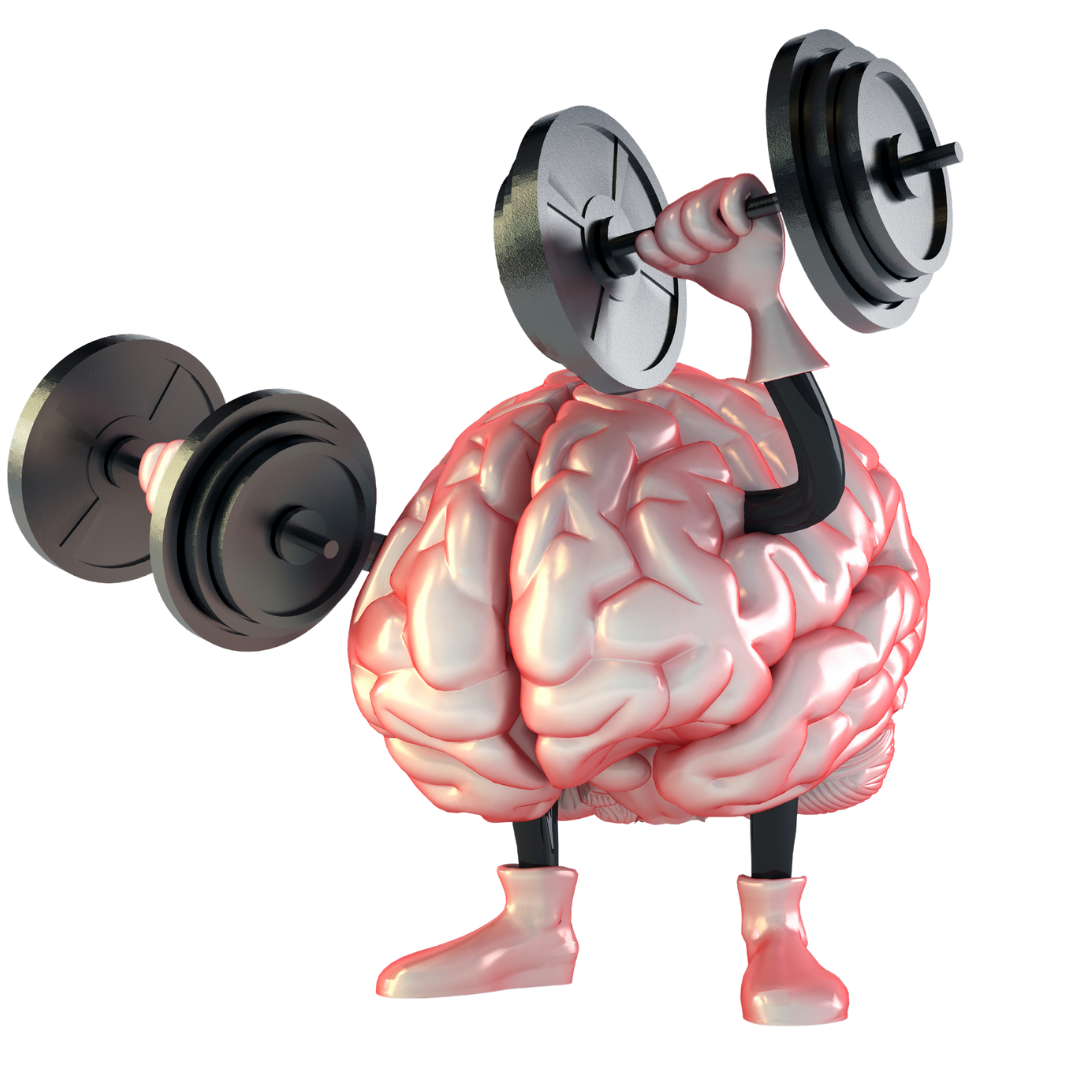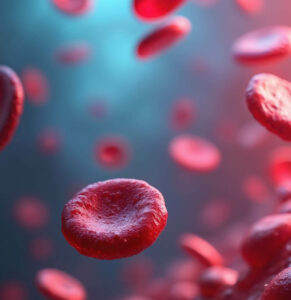Intranasal insulin (INI) has emerged as a promising therapy with a wide range of applications, from aiding recovery in traumatic brain injury (TBI) and stroke to serving as a potent tool for biohackers seeking neuro-enhancement. This new method delivers insulin directly to the brain by bypassing the blood-brain barrier. This allows for better health benefits. In this article, we will delve into the science behind INI, explore its benefits, and provide instructions on how to create your own intranasal insulin spray at home.
The Science Behind Intranasal Insulin

Intranasal insulin administration leverages the olfactory and trigeminal nerve pathways, which offer a direct route to the central nervous system. This method circumvents the need for insulin to travel through the bloodstream and penetrate the blood-brain barrier, making it a highly effective way to deliver insulin to the brain.
According to research, intranasal insulin has shown significant potential in improving cognitive function and neuroprotection. It has been studied extensively for its effects on Alzheimer’s disease, with trials indicating that it can enhance memory and cognitive performance in individuals with mild cognitive impairment (MCI) and Alzheimer’s disease.
Benefits of Intranasal Insulin
Traumatic Brain Injury (TBI):
INI can help mitigate the effects of TBI by reducing inflammation and promoting neural repair. This can lead to improved outcomes and faster recovery for individuals who have suffered from brain injuries.
- Reduction of Inflammation: One of the primary challenges in TBI recovery is managing inflammation. Intranasal insulin has anti-inflammatory properties that can help reduce swelling in the brain, thereby minimizing further damage and accelerating the healing process.
- Neuroprotection and Repair: INI promotes the survival and growth of neurons, enhancing the brain’s ability to repair itself after injury. This neuroprotective effect can lead to improved cognitive and motor function over time.
Stroke Recovery:
Intranasal insulin has been shown to enhance recovery post-stroke by improving cerebral blood flow and reducing neuronal damage. This can significantly impact the rehabilitation process, leading to better functional outcomes.
- Improved Cerebral Blood Flow: By enhancing blood flow to the brain, INI can help deliver essential nutrients and oxygen more efficiently, which is crucial for recovery after a stroke.
- Reduction of Neuronal Damage: Stroke often leads to significant neuronal damage. INI helps protect neurons from further damage and supports their recovery, improving overall brain function.
Alzheimer’s Disease and Cognitive Decline:

Intranasal insulin has been studied for its potential to slow down or even reverse cognitive decline in patients with Alzheimer’s disease and mild cognitive impairment (MCI).
- Memory Enhancement: INI has been shown to improve memory performance in individuals with MCI and Alzheimer’s disease by enhancing synaptic plasticity, which is essential for learning and memory.
- Cognitive Function Improvement: Regular use of INI has been associated with better performance in cognitive tasks, improved attention, and overall mental clarity.
Neuro-enhancement for Biohackers:
Biohackers have taken a keen interest in intranasal insulin for its cognitive-enhancing properties. Studies suggest that INI can improve attention, working memory, and overall cognitive performance, making it an attractive option for those looking to enhance their mental capabilities.
- Enhanced Working Memory: Biohackers report that INI helps in boosting working memory, which is critical for tasks that require mental effort and concentration.
- Increased Attention and Focus: INI can enhance attentional control, allowing individuals to stay focused on tasks for extended periods.
- Overall Cognitive Enhancement: Regular use of INI can lead to improvements in various cognitive domains, making it a popular choice among those seeking to maximize their mental performance.
ViveWell Health’s Brain Restoration & Enhancement Services
At ViveWell Health, we offer comprehensive brain restoration and enhancement services designed to optimize cognitive function and support brain health. Our holistic approach combines cutting-edge therapies, such as intranasal insulin, with personalized care to address various neurological conditions and enhance mental performance.
Key Services Include:

- TruDOSE™ Regenerative Therapy: TruDOSE™ Regenerative Therapy supports brain health by using a personalized, data-driven platelet therapy designed to reduce inflammation and promote natural neurological healing. By optimizing your body’s own regenerative signals, TruDOSE™ may help improve cognitive clarity, support recovery from neurological stress or injury, and enhance overall brain function as part of ViveWell’s integrative brain restoration approach.
- Peptide Therapy: Peptide Therapy uses specific amino acids to promote brain healing and growth. It provides neuroprotection, enhances neuron growth, improves blood flow, and reduces inflammation. This therapy is a cornerstone in treating various neurodegenerative conditions, offering hope for improved brain function and quality of life.
- Phosphatidylcholine (PC) Therapy: Phosphatidylcholine is essential for brain health, and its decline with age can impact memory and cognition. PC Therapy involves administering PC to improve these cognitive functions. This therapy is instrumental in combating age-related cognitive decline and supporting overall brain health.
- NAD+ Infusion: NAD+ is vital for cellular health and function. NAD+ Infusion therapy replenishes cellular NAD+ levels, essential for energy production, DNA repair, and maintaining healthy brain function. This therapy is key in slowing down the aging process and enhancing cognitive functions like memory and concentration.
- Nutritional IV Therapy: Customized intravenous therapies that deliver essential vitamins, minerals, and nutrients directly to the bloodstream, supporting brain health and overall wellness.
- Neuropsychological Assessments: Comprehensive evaluations that assess cognitive, emotional, and psychological functioning. These assessments help in diagnosing neurological conditions and guiding personalized treatment plans.
- Comprehensive Blood Panel Testing: Detailed blood tests that provide insights into various biomarkers related to brain health and overall well-being. This information helps tailor personalized treatment plans for optimal brain function.

By integrating these advanced therapies and personalized care, ViveWell Health is dedicated to enhancing cognitive function and promoting overall brain health. Our expert team is committed to helping you achieve your mental wellness goals through innovative and effective treatments.
Conclusion
Intranasal insulin represents a revolutionary approach to brain health, offering significant benefits for individuals recovering from TBI and stroke, as well as for those seeking cognitive enhancement. By understanding the science behind INI and following proper administration techniques, you can harness its potential for improving mental and neurological function. Always consult with a healthcare provider before starting any new treatment regimen.
By implementing intranasal insulin into your routine, you can take proactive steps toward enhancing your cognitive abilities and supporting brain health. Explore the possibilities of this innovative therapy and discover the benefits it can bring to your life.
References:
Adzovic, L., Lynn, A. E., D’Angelo, H. M., Crockett, A. M., Kaercher, R. M., Royer, S. E., Hopp, S. C., & Wenk, G. L. (2015). Insulin improves memory and reduces chronic neuroinflammation in the hippocampus of young but not aged brains. Journal of neuroinflammation, 12, 63. https://doi.org/10.1186/s12974-015-0282-z
Benedict, C., Hallschmid, M., Hatke, A., Schultes, B., Fehm, H. L., Born, J., & Kern, W. (2004). Intranasal insulin improves memory in humans. Psychoneuroendocrinology, 29(10), 1326–1334. https://doi.org/10.1016/j.psyneuen.2004.04.003
Brabazon, F., Wilson, C. M., Jaiswal, S., Reed, J., Frey, W. H., Nd, & Byrnes, K. R. (2017). Intranasal insulin treatment of an experimental model of moderate traumatic brain injury. Journal of cerebral blood flow and metabolism : official journal of the International Society of Cerebral Blood Flow and Metabolism, 37(9), 3203–3218. https://doi.org/10.1177/0271678X16685106
Claxton, A., Baker, L. D., Wilkinson, C. W., Trittschuh, E. H., Chapman, D., Watson, G. S., Cholerton, B., Plymate, S. R., Arbuckle, M., & Craft, S. (2013). Sex and ApoE genotype differences in treatment response to two doses of intranasal insulin in adults with mild cognitive impairment or Alzheimer’s disease. Journal of Alzheimer’s disease : JAD, 35(4), 789–797. https://doi.org/10.3233/JAD-122308
Claxton, Amy et al. ‘Long-Acting Intranasal Insulin Detemir Improves Cognition for Adults with Mild Cognitive Impairment or Early-Stage Alzheimer’s Disease Dementia’. 1 Jan. 2015 : 897 – 906.
Dash, S., Xiao, C., Morgantini, C., Koulajian, K., & Lewis, G. F. (2015). Intranasal insulin suppresses endogenous glucose production in humans compared with placebo in the presence of similar venous insulin concentrations. Diabetes, 64(3), 766–774. https://doi.org/10.2337/db14-0685
de la Monte S. M. (2012). Early intranasal insulin therapy halts progression of neurodegeneration: progress in Alzheimer’s disease therapeutics. Aging health, 8(1), 61–64. https://doi.org/10.2217/ahe.11.89
Hallschmid, M. Intranasal Insulin for Alzheimer’s Disease. CNS Drugs 35, 21–37 (2021). https://doi.org/10.1007/s40263-020-00781-x
Heni, M., Wagner, R., Kullmann, S., Veit, R., Mat Husin, H., Linder, K., Benkendorff, C., Peter, A., Stefan, N., Häring, H. U., Preissl, H., & Fritsche, A. (2014). Central insulin administration improves whole-body insulin sensitivity via hypothalamus and parasympathetic outputs in men. Diabetes, 63(12), 4083–4088. https://doi.org/10.2337/db14-0477
Iwen, K. A., Scherer, T., Heni, M., Sayk, F., Wellnitz, T., Machleidt, F., Preissl, H., Häring, H. U., Fritsche, A., Lehnert, H., Buettner, C., & Hallschmid, M. (2014). Intranasal insulin suppresses systemic but not subcutaneous lipolysis in healthy humans. The Journal of clinical endocrinology and metabolism, 99(2), E246–E251. https://doi.org/10.1210/jc.2013-3169
Lioutas, V. A., & Novak, V. (2016). Intranasal insulin neuroprotection in ischemic stroke. Neural regeneration research, 11(3), 400–401. https://doi.org/10.4103/1673-5374.179040
McIntyre, R. S., Soczynska, J. K., Woldeyohannes, H. O., Miranda, A., Vaccarino, A., Macqueen, G., Lewis, G. F., & Kennedy, S. H. (2012). A randomized, double-blind, controlled trial evaluating the effect of intranasal insulin on neurocognitive function in euthymic patients with bipolar disorder. Bipolar disorders, 14(7), 697–706. https://doi.org/10.1111/bdi.12006
Salameh, T. S., Bullock, K. M., Hujoel, I. A., Niehoff, M. L., Wolden-Hanson, T., Kim, J., Morley, J. E., Farr, S. A., & Banks, W. A. (2015). Central Nervous System Delivery of Intranasal Insulin: Mechanisms of Uptake and Effects on Cognition. Journal of Alzheimer’s disease : JAD, 47(3), 715–728. https://doi.org/10.3233/JAD-150307
Schilling, T. M., Ferreira de Sá, D. S., Westerhausen, R., Strelzyk, F., Larra, M. F., Hallschmid, M., Savaskan, E., Oitzl, M. S., Busch, H. P., Naumann, E., & Schächinger, H. (2014). Intranasal insulin increases regional cerebral blood flow in the insular cortex in men independently of cortisol manipulation. Human brain mapping, 35(5), 1944–1956. https://doi.org/10.1002/hbm.22304
Schmidt, H., Kern, W., Giese, R., Hallschmid, M., & Enders, A. (2009). Intranasal insulin to improve developmental delay in children with 22q13 deletion syndrome: an exploratory clinical trial. Journal of medical genetics, 46(4), 217–222. https://doi.org/10.1136/jmg.2008.062141






